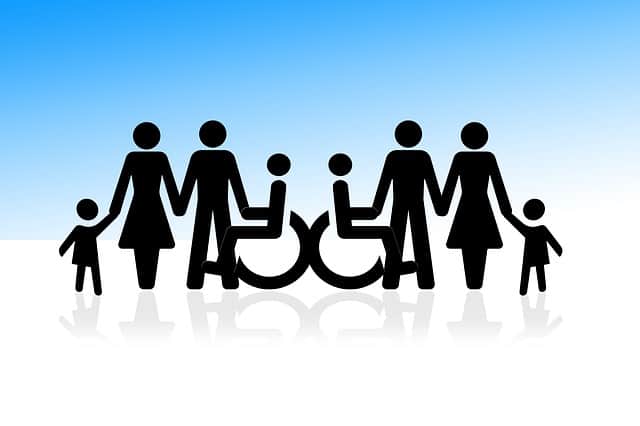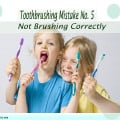(5 Facts) Children with Chronic Health Conditions & Orthodontics
Last Updated on February 22, 2022 by Gio Greenard
Parents today are much more aware of dental procedures that can improve or enhance their kids’ teeth for life. Pediatric dentists frequently refer children who are patients to an orthodontist who can evaluate them for the potential benefits of wearing braces. Diagnosing an orthodontic issue at a child’s optimum age can help to ensure that timely, effective treatment is provided. However, children with chronic health conditions sometimes need extra support or precautions when getting orthodontic work done. Here are a few tips for parents of a chronically ill child who is in need of orthodontic.

Contents
Get a Complete Orthodontic Evaluation for Braces
If your dentist has recommended orthodontic work for a child who has chronic health conditions, first schedule an evaluation with the referred specialist to get a clear idea of the type of treatment that is being recommended. The assessment might include panoramic x-rays, an oral exam, a medical history, and other related tests as deemed necessary. The orthodontist will want to do a comprehensive evaluation before recommending a specific course of action for a child patient. It is also a good idea to get an impression of the orthodontist and staff members to see if the child will be comfortable during treatment there.
Explain any Chronic Health Conditions
It is important for parents at the first visit to mention a child’s chronic health conditions, problems, and treatments. The orthodontist will probably want to know when the condition was diagnosed, which specialists the child is seeing for the condition, the type of treatments and medications that are being used, and the child’s overall general health. Other factors that could have an impact should also be discussed so the orthodontist has a clear image of the patient’s big picture health situation.
This will enable the specialist to determine the best course of treatment for correcting orthodontic problems, along with accompanying dental care and checkups. The orthodontist may request copies of medical reports, test results, and physician updates to formulate a complete profile of the patient before beginning treatment. You will need to sign a medical release for each provider so the office staff can fax or email the child’s information to the orthodontist.
Help Your Child Understand the Orthodontic Treatment
Most kids who receive orthodontic treatment are old enough to understand the basic plan and what to expect when the process begins. However, a child with physical disabilities that include movements like shuddering or reduced limb control, or one who wears a body brace or orthopedic device, may need extra reassurance or support for orthodontic treatment. It is important for an anxious child to understand the value of orthodontic work to help him or her relax. A pediatric orthodontist and the office staff will make the patient feel comfortable during each visit. Tests and procedures will be explained and usually applied at the child’s comfort level.
There’s so much more…
Age-appropriate activities to engage the child during treatment, such as videos or interactive games, may be offered. Stickers, books, and other prizes along with compliments and encouragement are given to make each patient feel confident and successful. Parents can facilitate the child’s understanding of the process by adopting a friendly and relaxed manner at the office and staying with or near the child during exams and treatments. Kids with chronic health issues may have better understanding of certain processes due to prior x-rays and blood draws. They may be pros at cooperating with orthodontic staff since they are used to routinely dealing with medical employees.
Coordinate Medical and Dental Health Care Services
There are many reasons to keep medical and orthodontic offices informed of a child’s chronic health conditions, especially if changes occur:
- Medical and orthodontic teams can coordinate care to avoid problems like drug interactions or schedule snafus
- Some medical services may work more effectively in conjunction with orthodontic services or perhaps delayed to avoid overwhelming a patient
- The child’s well-being is paramount in balancing a range of treatments or health cycles in certain conditions rather than just ordering tests, services, and medications without awareness of other treatments
Chronic conditions may worsen at certain times of the year or following certain kinds of treatment. The medical team and the orthodontic specialist should be kept aware of the general progress of each juvenile patient in order to streamline services in the most meaningful way. If one of the health care providers notices a new development, it can be reported to the other providers involved to prevent complications.
Keep Your Child Informed
Along with keeping the doctors informed, the patient also needs to know what to expect with each office visit. If something unexpected develops, let your son or daughter know so there are no surprises at the medical center or orthodontics office. An unexpected surprise can create a bad impression for kids, who may then balk at returning for ongoing or follow-up care. Most orthodontic staff members are great at helping kids understand what to expect during the current visit and for the next time. Parents may want to remind their child about an upcoming visit or procedure to prepare their young patient mentally and physically.
Kids may have a mild chronic condition like asthma that is readily managed with an inhaler or avoiding specific triggers. Other ongoing health conditions like diabetes or cancer may require more extensive preparation of both the orthodontic team and the children who are being treated. To find out more, call the recommended orthodontist’s office to schedule a complimentary consultation.
Kids are often willing to visit an orthodontist’s office to discuss potential treatment when they know that nothing will be done the first time. That visit provides a helpful introduction that can pave the way to successful orthodontic treatment. It also gives the orthodontist an idea of the child’s personality and health care needs when deciding the best plan of treatment for orthodontic care.
Contact us Today
Find out more to help you make an informed decision about orthodontic treatment for a chronically-ill child by booking a FREE consultation with Dr. Panucci and her amazing team.
220 N. Aviation Blvd. Suite A
Manhattan Beach, CA 90266
Phone: (310) 379-0006
(5 Facts) Children with Chronic Health Conditions & Orthodontics

Dr Patti Panucci attended the University of Louisville School of Dentistry for four years, where she graduated with a DMD degree (May 2000) among the Top 10 in her class. Following that, she headed west to Los Angeles to complete her three-year residency at one of the top-ranked orthodontic programs in the country – the University of Southern California.
Along with her certificate in orthodontics, Dr. Panucci earned a master’s degree in craniofacial biology. During those three years, she fell in love with Southern California beach life and decided that this was where her future lay.














Leave a Reply
Want to join the discussion?Feel free to contribute!